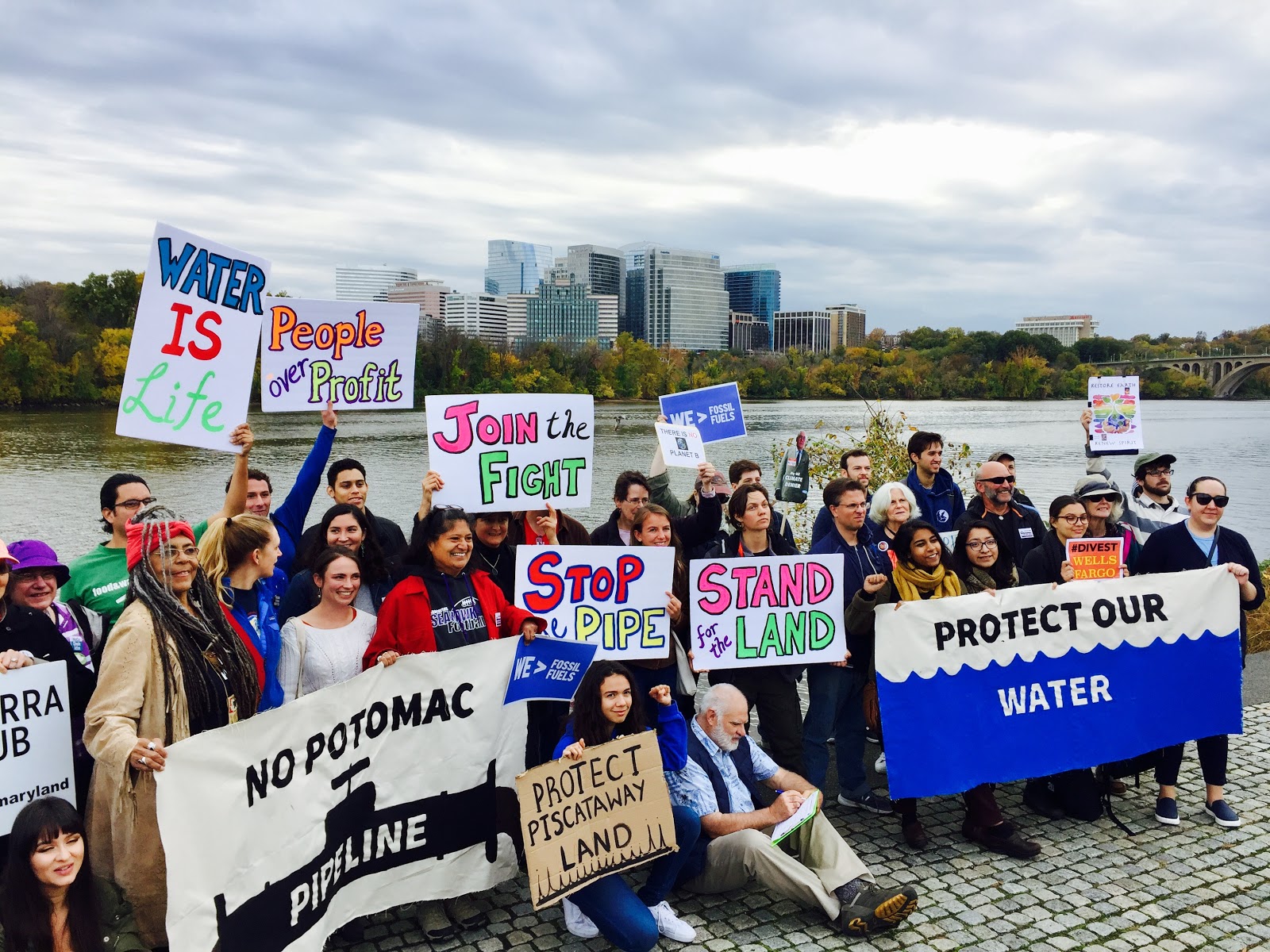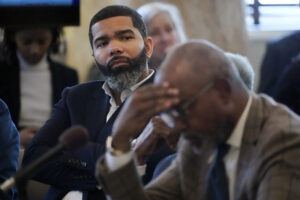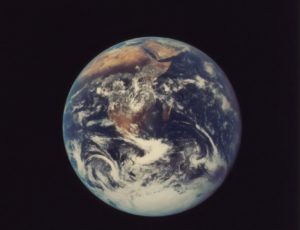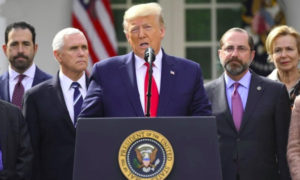Protesters Target Proposed Potomac River Pipeline
If approved, the Eastern Panhandle Extension would pass through Maryland, Virginia, West Virginia and Washington, D.C. Protesters gather Saturday to pressure Maryland Gov. Larry Hogan to block TransCanada’s proposed pipeline. (Anthony Torres)
Protesters gather Saturday to pressure Maryland Gov. Larry Hogan to block TransCanada’s proposed pipeline. (Anthony Torres)
More than 100 people gathered Saturday on the banks of the Potomac River to protest a proposed 3.5-mile underground natural gas pipeline that would cross far below the river in the DMV area—a local abbreviation that stands for Washington, D.C., Maryland and Virginia. The pipeline project, which has gone largely uncovered by mainstream media, would be built by TransCanada, a company behind the controversial Keystone XL pipeline.
“This fracked gas pipeline would go through very porous bedrock under the Potomac River. When—not if—the pipeline leaks, it would be dangerously easy for any pollutants to get into our drinking water, putting 6 million people’s health at risk. DMV residents came together today to stand up for our water and against reckless, unnecessary fossil fuel projects,” said Ntebo Mokuena, a member of 350 DC, one of the groups that sponsored Saturday’s protest, in a press release.
Sebastian Medina-Tayac, an event organizer and a member of the Piscataway Indian Nation and a group called Rising Hearts, added, “As the original people of this region, we depend on the river for our spiritual and material sustenance. Any threat to the river is a threat to our way of life and the future of our nation. Our elders tell us we come from the river and that it flows through our veins, the same way it flows through this great land now known as Maryland and Washington DC.”
The press release continues:
DMV-area groups and concerned residents have been building pressure on [Maryland Gov. Larry] Hogan to follow the lead of New York Governor Andrew Cuomo, who has rejected Clean Water Act water quality certificates for several proposed pipelines, blocking their construction. A similar water quality certificate rejection from Hogan would stop the Eastern Panhandle Extension from being built.
The Baltimore Sun reports that critics of the project say it could threaten a river that provides drinking water to millions.
Beautiful crowd on the banks of the Potomac, here to say NO to a fracked gas pipeline that would threaten this river. #NoPotomacPipelinepic.twitter.com/4Tj2h88gWT
— Devyn Powell ? (@DevynFromOregon) November 4, 2017
“This pipeline and fracked gas pipelines in general are becoming the new threat to this country. … It’s not going to benefit Marylanders whatsoever,” Denise Robbins, spokeswoman for the Chesapeake Climate Action Network, told the Sun.
H. Wood Thrasher, West Virginia’s secretary of commerce, says the pipeline is vital to the economy of eastern West Virginia, which has no underground natural gas reserves. But Brent Walls, an advocate for the protection of the river, says that any potential leak could prove a serious health hazard for residents of the area.
“There have been plenty of [incidents] across the nation where there have been gas lines that have leaked into their well water, into their drinking water,” he said. “That’s what we are mostly concerned with.”
Photos from the event were posted on Twitter:
Together we can stop the Potomac Pipeline! #NoPotomacPipeline pic.twitter.com/e82alpUXzh
— Sierra Club DC (@SierraDC) November 4, 2017
Your support matters…Happening Now: Piscataway Indigenous people lead at #NoPotomacPipeline rally in Georgetown DC against #TransCanada pipeline under Potomac. pic.twitter.com/C7OAkuvbBD
— DCMediaGroup (@DCMediaGroup) November 4, 2017
Independent journalism is under threat and overshadowed by heavily funded mainstream media.
You can help level the playing field. Become a member.
Your tax-deductible contribution keeps us digging beneath the headlines to give you thought-provoking, investigative reporting and analysis that unearths what's really happening- without compromise.
Give today to support our courageous, independent journalists.






You need to be a supporter to comment.
There are currently no responses to this article.
Be the first to respond.